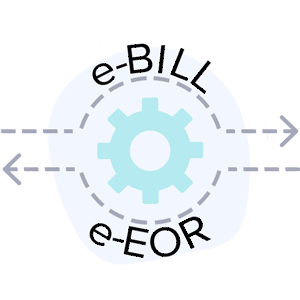Don't Rely on Claims Administrators. Providers Must Know The Rules.

Repeatedly, we hear some version or another of the same story: a provider reaches out to a claims administrator for information regarding workers’ comp billing and payment. The claims administrator provides information that turns out to be false, misleading, or irrelevant.
The provider then finds themselves out of compliance, or denied reimbursement, or both.
The reality is that providers have to look out for themselves. Providers must seek education on workers’ comp rules and regulations in their state — because claims administrators can’t possibly know the rules in every state.
California providers: Sign up here for our free Workers’ Comp 101 webinar series!
Jacks of All States, Masters of None
The reason claims administrators so often mislead providers isn’t a desire to manipulate. It’s simply a matter of expertise, or lack thereof.
Claims administrators working on behalf of national employers, insurance companies, and third-party organizations field claims from multiple states (sometimes all fifty) for all kinds of insurance, from group health to life to liability. They simply don’t have the expertise in state-specific workers’ comp rules to know what they’re talking about.
Anyone who’s worked in workers’ comp knows how unfathomably complex the rules can be. A given state can have hundreds of pages of a regulatory hodgepodge, on top of ever-shifting, bafflingly complicated fee schedules with endless twists, turns, and fee-affecting variables.
As a provider, you have only one way to protect your office’s revenue: know your stuff.
Provider Education = Provider Power
From authorization to billing to payment to appeals, there’s a ton to know about workers’ comp in your state. It’s an unfortunate reality, but the burden of expertise — like so many burdens in workers’ comp — falls on the provider. It’s up to you, your staff, or your billing agents to have in-depth knowledge of the system.
If you don’t educate yourself, if you don’t arm yourself and your staff with the knowledge required to navigate the system, your office is vulnerable. Turning to a claims administrator call center rep, who has limited (to say the least) information, is bound to backfire.
This is not to imply that claims administrators are intentionally giving out bad information. But if providers don’t feel confident in their ability to obtain proper reimbursement for taking care of injured workers, the entire system suffers.
That’s why it’s so important for providers to seek reliable, accurate information on how best to manage their billing — from trustworthy sources.
One way to ensure correct, timely reimbursement: reliable workers’ comp-specific billing software. We know the rules, the fee schedules, and what it takes to bill beautifully. Schedule a free demonstration today.
SCHEDULE DEMO
DaisyBill provides content as an insightful service to its readers and clients. It does not offer legal advice and cannot guarantee the accuracy or suitability of its content for a particular purpose.




